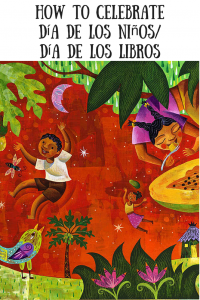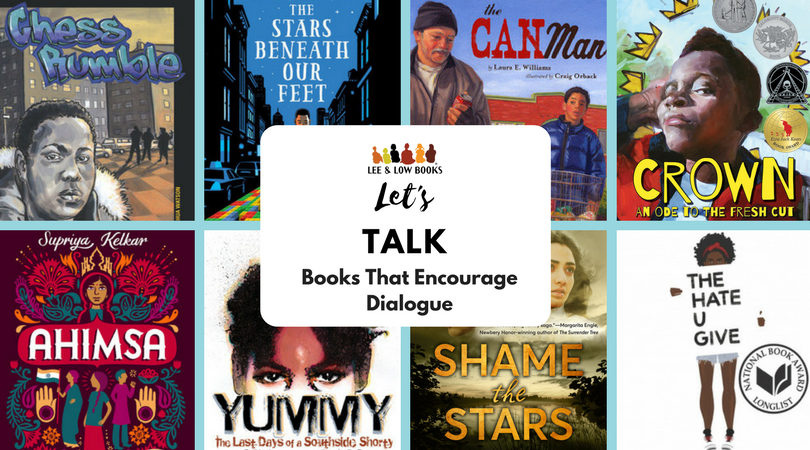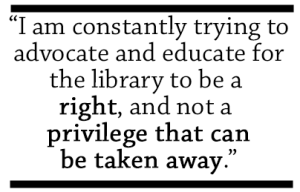Día de los niños/Día de los libros (Children’s Day/Book Day) is an annual celebration of books and literacy that takes place each year on our near April 30. The American Library Association says:
Día is a nationally recognized initiative that emphasizes the importance of literacy for all children from all backgrounds. It is a daily commitment to linking children and their families to diverse books, languages and cultures.
 Día’s founder, and one of its biggest proponents, is award-winning author Pat Mora. We asked her 5 questions about the holiday and how to celebrate it:
Día’s founder, and one of its biggest proponents, is award-winning author Pat Mora. We asked her 5 questions about the holiday and how to celebrate it:
What is bookjoy and how do you hope Día will cultivate it in young/early readers?
I coined the word bookjoy to convey the private and delicious pleasure of enjoying time with books. Little ones can thoroughly experience bookjoy long before they’re readers if the adults around them share excitement about books.
What impact is Día having on communities where it is celebrated?
Día strengthens communities because it brings diverse children and families together to celebrate all our children and to connect them to bookjoy. Día is a year-long commitment to share literacy creatively with culminating celebrations held in April on or near  April 30th.
April 30th.
Do you feel that the recent push for more diversity in publishing (especially with the We Need Diverse Books community campaign) has sparked renewed interest in Día?
I hope so. We celebrate Dia’s 20th Anniversary April 2016. For years, I’ve written and spoken about the importance of a national book community, including publishers, authors, illustrators, and award committees, and reviewers that reflect the diversity of our children. Those of us in this community need to participate in creating a body of children’s literature that honors our plurality.
What would you say to a library or school that wants to celebrate Día but doesn’t have many resources at its disposal?
Those of us committed to Children’s Day, Book Day, in Spanish El día de los niños, El día de los libros are creating a tradition in the same way that Mother’s Day and Father’s Day are traditions in our country. Exciting: honoring all children and sharing bookjoy with them. Some April observances are small and some are big, but the important element is annually sharing this tradition. Literacy is essential in a democracy. Let’s celebrate kids and books!
What role does community play in the celebration of Día? How can individual readers support or celebrate Día?
Readers enjoy sharing an important value in our lives: books! We can ask our nearby or local schools and libraries if they celebrate Día and be prepared to explain what it is and why it’s important. We can volunteer to help or provide a donation. Many Día celebrations include book-giveaways and books as prizes. Schools and libraries welcome our support. When diverse groups of diverse ages join together for children, it energizes communities.







 protection: the rage, indifference and sullenness. I recognized that if I was struggling with it, then I wasn’t a fundamentally hateful person. That was life changing for me. I felt such a deep connection with her as a result of this inner experience, I read every book she wrote as it was published.
protection: the rage, indifference and sullenness. I recognized that if I was struggling with it, then I wasn’t a fundamentally hateful person. That was life changing for me. I felt such a deep connection with her as a result of this inner experience, I read every book she wrote as it was published.